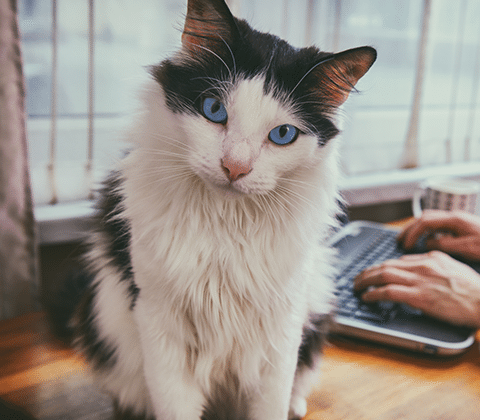While the present rules won’t end pet-free letting, Andrew Rosindell MP is determined to see the rules become law – so landlords will need to familiarise themselves with the new rules as soon as possible, or that they are working with agents that are.
It has been almost standard practice for decades for landlords to place a blanket ban on pets – in fact, government research found that only 7% of private landlords advertise properties as pet friendly, leading housing minister Christopher Pincher to state that:
“It can’t be right that only a tiny fraction of landlords advertise pet friendly properties and in some cases people have had to give up their beloved pets in order to find somewhere to live.”
What does this mean for landlords?
While there is no rule that completely forbids landlords from keeping their properties pet free, the new guidance does mean that landlords must supply a valid reason for refusing pets within 28 days of a written request from a tenant. The guidance in the updated ‘Model Tenancy Agreement’ is as follows:
“Clause C3.5 prohibits a landlord from exercising a blanket ban on pets. A responsible pet owner will be aware of their responsibilities in making best efforts to ensure their pet does not cause a nuisance to neighbouring households or undue damage to the Property. A landlord should take steps to accommodate written requests from responsible tenants with pets. They should only turn down a request in writing within a 28 day period if there is good reason to do so, such as large pets in smaller properties or flats, or otherwise properties where having a pet could be impractical. Landlord consent is therefore the default position unless otherwise specified in writing by a landlord. If consent is given on the condition that additional deposit is paid by the tenant, the total deposit must not breach the deposit cap introduced under the Tenant Fees Act 2019 and must be protected in an authorised tenancy deposit scheme.”
As can be seen in the above section, there are provisions for landlords to ensure that their investment is taken care of through increased deposit amounts (within the standard deposit cap), as well as grounds for reasonable objection – in cases where they believe the pet would cause undue nuisance for neighbours, or is too large for the property, for example. However, the sentence to be aware of here is that ‘consent is therefore the default position unless otherwise specified in writing by a landlord’. This means that landlords wishing to maintain a property as a pet free let will need to ensure that they have a good reason and are prompt with their responses.
This does not prevent a landlord seeking to hold tenants financially accountable for damage caused by their tenant’s pets – and it may, therefore, be in the interests of landlords to stipulate that tenants with pets will face deductions to cover the cost of deep cleaning a property to ensure that it can still be let if the next tenant were to have pet allergies.
While there have been no changes to the underlying legislation – meaning that, should you draft your own legal documents, you can still ban tenants from owning pets, this does look like a first rather than final step in the process, so it may be that landlords will need to consider how they would respond to a legal change and begin to act as though the law has changed instead of having to react later on.
Are you currently using the Mode Tenancy Agreement and want help to update the document going forward, or looking for other legal advice? Our team of experts can help. Contact Us today to see what we can do for you.









